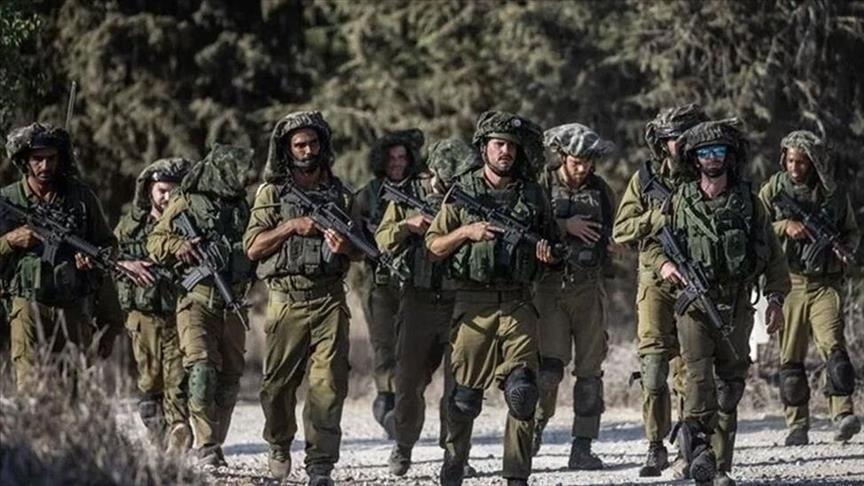At least seven Israeli soldiers lost their lives on Tuesday in southern Gaza, the Israeli military confirmed on Wednesday, June 25, 2025.
The soldiers, part of the 605th combat engineering battalion, were killed when a militant-planted explosive device detonated under their vehicle in Khan Younis, triggering a fire.
Hamas claimed responsibility for the attack.
Rescue teams and helicopters were deployed, but attempts to save the troops were unsuccessful, according to Brigadier General Effie Defrin.
Their battalion has been actively involved in destroying tunnels and targeting militant positions in the region.
With these casualties, the total death toll among Israeli soldiers in Gaza since the 7 October 2023 Hamas attack has climbed to 879.
That initial assault, carried out by Hamas in southern Israel, claimed around 1,200 lives and saw approximately 250 people taken hostage, as reported by Palestinian and Israeli sources.
Meanwhile, violence claimed further lives in Gaza.
According to local health authorities, 74 Palestinians were killed by Israeli forces in the past 24 hours, adding to the mounting civilian toll.
Tragically, at least 40 Palestinians seeking humanitarian aid were shot by Israeli troops.
The attack on aid recipients occurred amid worsening conflict dynamics following the breakdown of a truce.
Humanitarian Crisis Deepens in Gaza
Since Israel resumed air and ground operations in March, in defiance of efforts to extend a ceasefire—the humanitarian situation in Gaza has deteriorated dramatically.
Israel’s two-month siege on aid deliveries has led to what international observers describe as famine-like conditions across the territory.
A recent UNICEF report warned that over 60% of Gaza’s water infrastructure is non-operational and that there has been a 50% increase in acute child malnutrition between April and May alone.
The Gaza Humanitarian Foundation (GHF), a private aid group backed by the U.S. and Israel, has reportedly become a flashpoint.
Hundreds of Palestinians were shot dead by Israeli forces while queuing for food distributed by the GHF.
Their access is heavily regulated by Israel, and scenes of chaos amid lethal crackdowns have raised serious concerns.
International aid organizations have accused the GHF of undermining key principles of neutrality and independence, suggesting it may be complicit in possible war crimes.
Diplomatic Ripples: Israeli Ceasefire Momentum Grows
A recent ceasefire agreement between the U.S. and Israel, which halted strikes on Iranian nuclear facilities, appears to have created momentum for discussions about Gaza.
U.S. President Donald Trump, speaking at a NATO summit in the Netherlands, called the Iran operation “powerful” and “a helpful step.”
He hinted that it could open the door to advances in Gaza negotiations.
Within Israel, voices for peace are emerging. Moshe Gafni, a Knesset member and head of United Torah Judaism, criticized the ongoing military campaign.
“We need someone like Trump to say ‘Enough!’,” he remarked, echoing a sense of exhaustion among some Israelis.
This sentiment contrasts with more hawkish figures, including Finance Minister Bezalel Smotrich, who has stated that the Israeli military could defeat Hamas within months.
Hostages Drive Ceasefire Talks
Israel claims 50 hostages remain in Gaza, though it notes that 30 are likely dead.
The latest U.S. ceasefire proposal outlined a 60-day truce, during which half of the living hostages and half of those deceased would be released, alongside initial steps toward durable peace.
Hamas, however, has called for a complete end to the Gaza war and fewer hostage releases—setting the stage for further disagreement.
Amid these tensions, the Hostages and Missing Families Forum urged Israel to expand the new Iran ceasefire to include Gaza.
“If they can negotiate with Iran,” the forum stated, “they can end the war in Gaza and bring home our loved ones.”
A Divided Path Forward
As Gaza remains embroiled in violence, the international community watches closely.
In southern Gaza, an Israeli raid claimed seven lives in one day, sharpening the tragedy of lost lives on both sides.
With famine looming and civilian suffering rising, renewed calls for a ceasefire in Gaza are growing louder.
But the divide between military ambitions and humanitarian relief remains stark.
For now, Israel finds itself at a critical juncture: whether to continue pressing militarily or shift toward a negotiated end to hostilities.
In Gaza, civilians bear the greatest cost, amid collapsing infrastructure, dwindling food and water supplies, and ongoing violence.
The world awaits whether momentum toward peace can override the momentum toward destruction.







